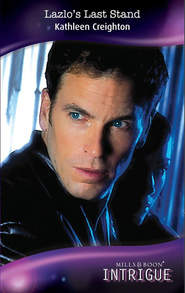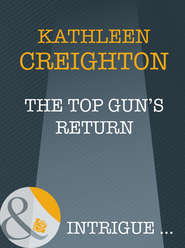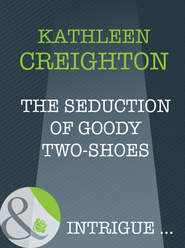По всем вопросам обращайтесь на: info@litportal.ru
(©) 2003-2025.
✖
The Awakening Of Dr. Brown
Автор
Год написания книги
2018
Настройки чтения
Размер шрифта
Высота строк
Поля
Before somebody else dies.
Safely out of view of those attending the meeting in the next room, Ethan leaned his forehead against the wall and closed his eyes. In his mind, as in a darkened movie theater, he saw again the body in the rubble, the blood, the blind dead eyes. And another pair of eyes, very much alive. Angry amber eyes. Proud, frightened eyes. He felt again the frustrated blow from a pair of small, clenched fists. He heard poignant echoes of Mrs. Schmidt’s voice: With a mother like that, he has a chance. What will become of Michael Parker, he wondered, now that his mother is dead?
Ethan knew what it was like to be a small boy left suddenly without a mother. Those memories came to him, not as images on a movie screen, but as a cold, sick feeling in his stomach, a yawning emptiness in his heart. Almost a quarter of a century later, oh, how well he remembered it—the fear, the desolation, the terrible sense of abandonment. Back then, part of him had wanted to lash out in anger; part had tried to retreat into the remembered security of babyhood. Every part of him had felt utterly bereft.
But he’d had his sister, Lauren. He didn’t know what he’d have done without Lolly, even though most of the time she’d treated him the way older sisters generally treat younger brothers. Still, she’d been there for him when it counted.
And then…there’d been the miracle. Dixie had come. Dixie, with her gifts of music and laughter and breezy Texas ways. Starved for a mother’s love, six-year-old Ethan had fallen for her immediately, long before his father had made her officially his stepmother. Long before the entire country had fallen in love with her casual, down-home charm and embraced her as its most unconventional First Lady. As his father the president was fond of saying, both in public and in private, God Bless Dixie.
Ethan had been lucky. He’d had Lolly to keep him on his toes and Dixie to love and care for him. Who would Michael Parker have?
Beside him the crack in the kitchen door cautiously widened, and he straightened hurriedly as Ruthie Mendoza slipped through and sidled past him. From the parlor, which also served the church as an informal meeting room, he could hear a rising level of noise and activity. He wondered what he’d missed while his mind had been wandering in his own distant past.
“What’s going on?” he asked Ruthie in a whisper.
“Wrapping up.” Ruthie didn’t bother to lower her voice. Nor did she look at him, but went on making unnecessary adjustments to the platters of oatmeal-chocolate-chip cookies that were spread across the kitchen table. From the way she’d been pushing them on him all evening, Ethan suspected she’d made them herself. “I’m just going to take these in…”
She swept toward him with a plate of cookies in each hand and a spot of color in each cheek. All Ethan could do was pull the door open for her and shrink back behind it, well out of the line of sight of anyone in the parlor. As Ruthie sailed out the door, her brother, wearing a short-sleeved black shirt and his clerical collar, for once, sidestepped around her and into the kitchen. Ethan all but pounced on him.
“What happened? What did they decide? Are they going to the mayor? What about—”
“No city, state or federal officials—not yet,” Father Frank said with the contained satisfaction of someone who’s had things go exactly his way. He picked up a cookie and bit into it, glancing down at his rounded shirtfront as he did so; apparently Ruthie had been nagging him again about putting on weight. He shrugged and picked up another cookie. “First thing we have to do is find out who owns that building—or block of buildings. Then we decide where to go from there. Lawsuits, like government agencies, take too long. What we’re hoping is that the threat of bad publicity will be enough to squeeze these slumlords into bringing their buildings up to standard.”
“You want me—”
The priest shook his head. “Mrs. Schmidt’s volunteered to go down to city hall tomorrow morning. She’s got a friend who works in the…I forget what department, the one where they issue permits, fire and safety inspections, things like that. Anyway, she’ll—” He broke off with a muttered, “Oops” as someone bumped the door from the outside. He lunged to block unauthorized entry while Ethan once again flattened himself against the wall.
Through the partly open door he could hear the unmistakeably carrying voice of a television news reporter: “Oh—Father Mendoza—Father, I wonder if you could take just a moment to tell us—” The door closed, cutting off the rest.
After a moment, swearing softly and feeling utterly powerless, Ethan adjusted a Chicago Cubs baseball cap to hide his blond hair and let himself out of the rectory through the side door, where a Secret Service agent waited unobtrusively for him in the shadows.
Mrs. Schmidt arrived at the clinic shortly after noon the next day, four hours late and with Father Frank Mendoza close on her heels. Ethan didn’t have to ask if the trip to city hall had been successful; both looked ready to burst.
Whatever the import of the news they’d brought, it had to wait while Ethan finished suturing a toddler’s badly mangled lip—from falling off the steps, his mother claimed. Ethan devoutly hoped it was true.
He was on his own, since Ruthie wasn’t due in until two o’clock and Clair, the morning nurse, was accompanying a compound fracture to Memorial Hospital for emergency surgery. He did his best to comfort the hysterical child and just barely managed to shove the mother into a nearby wheelchair before she passed out in a heap beside her son’s gurney. Meanwhile, Mrs. Schmidt and Father Frank fidgeted, reminding Ethan of leashed hunting dogs eager to be off after their quarry, whining and quivering and licking their chops.
“You’re never going to believe it,” they both said at once, leaping into the lull after the still-sniffling toddler and his mother had departed. Folding his arms across his barrel chest as if to physically contain himself, the priest yielded the floor to Mrs. Schmidt with a nod.
She took over eagerly, breathless as a girl. “It wasn’t easy. Thank goodness my friend Clair knew what to look for. I don’t think we’d have found it—at least not so quickly—if it hadn’t been for her. Not to mention the computer. Aren’t they just the most amazing things, though? You just punch in—”
Anticipating a major sidetrack, Ethan interrupted. “So, did you find out who owns those buildings?”
Mrs. Schmidt opened her mouth, but Father Frank—self-control apparently exhausted—got there first. “It’s an investments firm. They own all sorts of things, real estate, mostly. That firm in turn is owned by a corporation. The name of the corporation is…Phoenix Enterprises, Inc.” And he and Mrs. Schmidt said the last together then paused, once again looking fit to burst.
Ethan waited. A long five seconds or so ticked by before he made the connection. “Phoenix…what, you don’t mean—”
Mrs. Schmidt and Father Frank both nodded happily. Ethan groped for the wheelchair recently vacated by the toddler’s mother and lowered himself into it.
In an office in a downtown high-rise—situated almost directly across the harbor from the rehearsal studio and temporary living quarters of the rock icon known as Phoenix— Doveman sat on a leather sofa and watched his girl-child pace. Like an angry panther. Some critic had said that, he remembered, talking about the way she’d pace back and forth across the stage—he’d forgotten which concert tour it was, now. Didn’t matter. That critic had been right on. A panther was what she looked like, and right now, angry was what she was.
“How did this happen?” she asked as she about-faced, in a voice like a panther’s snarl. “Explain that to me, Patrick. I want to know how I became the owner of a tenement. A tenement in which somebody died.”
Doveman had often thought Patrick Kaufman resembled a great big rabbit with that overbite and those pale buggy eyes, especially like he was now, sitting upright and alert with his skinny forearms braced on his desktop. Which Doveman knew was a misleading impression; no man as meek and mild as Kaufman appeared to be could have survived twenty or so years as Phoenix’s business manager.
“It was a sound investment,” Patrick said, in the pleasantly deep voice that always seemed a surprise coming out of that Don Knotts body. “Those old row house neighborhoods are right in line with this whole wave of renovation that began back in the eighties with the yuppie invasion—block by block, they’re taking over the city. It’s only a matter of time—”
“A matter of time?” Phoenix’s soft, whiskey voice cracked on the last word, like the crunch of broken glass. Only Doveman heard the pain in it. “There’re people living in those buildings. What did you think they were going to do while you’re waiting around for the yuppies?” She paused, one hand going briefly to her forehead, then suddenly whirled and slapped both hands down on the business manager’s desktop. Knowing what was coming, Doveman winced and closed one eye. “You know what, Patrick?” she snapped, leaning across it, her face barely inches from Kaufman’s. “You’re fired.”
Kaufman merely sighed and shook his head; Phoenix was notorious for firing people. Over the past twenty years, Doveman figured the business manager had probably been fired six or seven times, at least. This time, though, he wasn’t all that sure she didn’t mean it.
“You never told me not to invest in apartment buildings—”
“Tenements, Patrick—tenements. I…am…a slumlord.”
She pushed herself away from the desk and in turning, caught Doveman’s eye. Just for an instant, but that flash of blue cut into his heart like a steely knife. Easy, baby-girl, his old whiskey-burned eyes said back to her, singing the song he’d sung to her for so many years. Doveman knows how you’re hurtin’. Doveman understands.
But she pivoted away from his eyes, body still tense, not ready to hear him yet. “Well. So now somebody’s died.” Her voice was hard, harsh, trying so hard not to show any emotion at all. “What now? Am I being sued?”
Kaufman shook his head. “No, not yet, anyway. This citizens group—apparently they just want you to meet with them, talk about what needs to be done. They said—”
“So do it.” Phoenix waved a regal hand in Patrick’s direction, apparently forgetting already that he was by her own decree no longer hers to command. “Meet with whoever you need to meet with. Find out what they want and give it to them. And no publicity, do you understand? Whatever it takes— What?” Kaufman was slowly but firmly shaking his head.
“I said you. It’s you they want to meet with. They made that very clear. They want you to meet them at the building where—” Now Phoenix’s head was going back and forth like a mechanical doll’s.
“No. No way José. Not even if Hell freezes over.”
“Then there will be publicity,” Kaufman said flatly. “That they’ve promised, and I think you’d be wise to believe them. The media has already been all over this. Be thankful it’s not an election year, or it would probably be worse. As it is, it’s a five-minute wonder—Young Ghetto Mom Seeks Relief From Heatwave, Dies in Balcony Collapse; Slumlord Sought. Film At Eleven! Tomorrow it’ll be old news.” He paused, rocking slightly in his swivel chair. “Unless, of course, somebody gets hold of the juicy little factoid that the slumlord in question is none other than the rock icon known as Phoenix. Who, by the way, currently happens to be in town preparing to launch a career comeback with a new album and world tour….”
“Tell them here,” Phoenix whispered, after a tense and prolonged silence. Perhaps only Doveman could see that she was trembling. “I’ll meet with them here, in this office—that’s it, or nothing. Let them go to the media if they want. Then they can sue me. And see how long it takes before they get one dime out of me!”
With her panther’s stride she crossed the office and was out the door. While Kaufman let go a hiss of breath, Doveman gave a shrug, picked up his stained and crumpled fedora and followed.
In the elevator, Phoenix leaned like an exhausted marathoner against the back wall. She heard Doveman step on just before the door closed, but he didn’t speak and neither did she. Behind her usual pair of mirrored sunglasses, her eyes were shut tight. There was a brassy taste in her mouth, and a sickening lurch in her stomach that had nothing to do with the elevator’s controlled plunge.
Tenements. Dear God, she owned tenements. She— Joanna Dunn—was a slumlord.
Somewhere God—no, not God. Somewhere the Devil must be laughing.
Momma, we’re cold. Can me and Jonathan and Chrissy get in bed with you?
That was what she remembered most—the cold. But it wasn’t cold that had killed this woman…this Louise Parker. It was the heat. All she’d wanted was a little breath of air.
“Doveman,” she said in a raggedy croak, “I didn’t know.”
He replied, his voice husky with more than the lifelong effects of whiskey and cigarettes, “I know, child. I know.”
Father Frank had tried his best once again to convince Ethan to skip the meeting.











